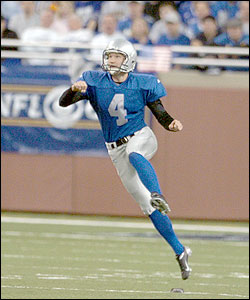The introduction to this interview
can be found here.
I was born in November of 1974 so my parents were hip-deep in my “terrible twos” when the Parti Québécois (PQ) won the provincial election in November of 1976. Obviously I don’t remember a thing about that time period, but from what I’ve read, the PQ’s victory was nothing short of shocking in English Canada. Despite warnings in
Laurendeau-Dunton report of 1969 of unrest within the francophone population, no one really believed that a sovereignist party would form a government. And according to Landry, it surprised even the PQ itself!
“It was not in our mind, at all.” Landry said. “It was the start of a movement. It was clear that the movement was not designed for [impatient] and ambitious people. Even in Lévesque’s mind, it was to be a long road. He was mistaken at that point because 6 years [after the PQ formed] we were in power. And we’ve governed Quebec most of the time since that period.”
Lévesque was in it for the long haul and gathered together people who were prepared for a struggle that may not be fully realized for decades. It definitely wasn’t a task for the faint of heart. Monsieur Landry recounted Lévesque’s theory to me:
“Lévesque said to me, in 1970, ‘It will be a long road, but independence should come when a generation will have passed.’ A generation is about 25 years, so Lévesque was [almost] right because, in 1995, we got 50% of the vote for independence.” Landry said.
I asked the former Premier of Quebec to think back to 1976 and to tell me about his first reactions to learning that, not only had he won his seat in the National Assembly, but also that his party would lead the government. In a word, he was stunned.
“It was incredible. It was so strange. Not for a fraction of a second did I think that I could beat a cabinet minister.” he said. But once he secured his seat, he just wanted to be a “member of the
National Assembly and doing my best to have our ideas progress. Those ideas being progression [of Quebec] and sovereignty.”
Now I had heard different terms over the years, ranging from the total independence of Quebec to some sort of
Sovereignty-Association, so I wanted some clarification. What is it he was fighting for? I wanted to clear up whatever misconceptions I may have had about the movement and look at things with an open mind, if I could.
“For Lévesque and people like myself, we were rather constant. For Lévesque, Quebec’s adventure was a national adventure and not an ethnic adventure. Lévesque was an inclusive man and, by the way, in ’76 we elected the first black people in the National Assembly. Many members of the cultural communities were in the first staff of the party.” Landry explained. “We were inclusive at that time and we’re still inclusive.”
“Second, Lévesque was in favour of a close economic association with the rest of Canada. It’s still my point of view: an independent Quebec, but with a free circulation of goods, services and persons between Quebec and Canada, just like they have in the European Union.” he said.
Now obviously there’s a big difference between the half-billion person economy and the 30 or so million that make up Quebec and Canada, but Landry is confident that a very equitable, free trade agreement could be made between the two groups. But why is there a need for an independent Quebec? Why leave Canada?
“There are many, many reasons. The first one is dignity. Quebec is a nation. That’s absolutely clear. Almost no one today objects to that because it’s a fact. Jean Charest is in agreement and [Michael] Ignatieff is in agreement—even Stéphane Dion. So if you are part of a nation, why would you be satisfied with the status of Prince Edward Island? A nation cannot be a simple province of another nation. It’s a matter of identity and dignity.” he explained.
“Starting from that principle, many material reasons are connected.” he continued. “The Canadian nation is managing its own interests. Sometimes it coincides with Quebec’s interests, sometimes not… but Canada is working for Canada and the Canadian nation and it’s detrimental in many, many ways to the interests of Quebec. There are many examples in history [where] the Canadian interests are one thing… [but] it’s directly against Quebec’s interest. An historical example: Wilfrid Laurier, Prime Minister of Canada, was advocating free trade between Canada and the United States in 1911. He was defeated and we had no free trade until recently with Brian Mulroney. It was in Quebec’s interest to have free trade. It’s obvious. We’re near New York. We’re near Boston. We connect directly, North-South. No. We were confined to Canadian economic space. It was against our interests, but it was probably good for Toronto and Canada as a whole. But not good for Quebec.” Landry said.
“My sovereignist convictions are not based on resentment. It’s based on our interests in the future and even with Canadian interests.” he clarified. “It’s not in the interests of Canada to be constantly fighting Quebec’s aspirations and trying to centralize when Quebec wants to de-centralize. Some things must be centralized in Canada, in the interests of New Brunswick and Prince Edward Island, but it’s against Quebec’s interests. So if Quebec is out of Canada, Canada will be in a better position to live its destiny and organize itself along values that are good for Canada. At the moment, it’s an internal fight: on constitution, on budget, about everything! It’s not good for Canada and not good for Quebec.”
It’s time to hit the pause button again and pick this up again another day. Next time we’ll wrap up my afternoon with Bernard Landry. Til next time…
Continue on to Part 3.
Labels: Bernard Landry, interview, Quebec, sovereignty
 I made it. Not entirely sure how or why, but I made it nonetheless. For those of you unaware of today’s National holiday, it’s called la Journée d’appréciation des danseuses, though you may know it by its more common name, Al’s birthday. Yes, it’s true; I’m inching further and further through my 4th decade on the planet, having reached the ripe ol’ age of 32. Rather than take my customary day off, I’ve opted to come into work today. I figured that I shouldn’t deprive the masses of their opportunity to greet me and wish me well.
I made it. Not entirely sure how or why, but I made it nonetheless. For those of you unaware of today’s National holiday, it’s called la Journée d’appréciation des danseuses, though you may know it by its more common name, Al’s birthday. Yes, it’s true; I’m inching further and further through my 4th decade on the planet, having reached the ripe ol’ age of 32. Rather than take my customary day off, I’ve opted to come into work today. I figured that I shouldn’t deprive the masses of their opportunity to greet me and wish me well.














